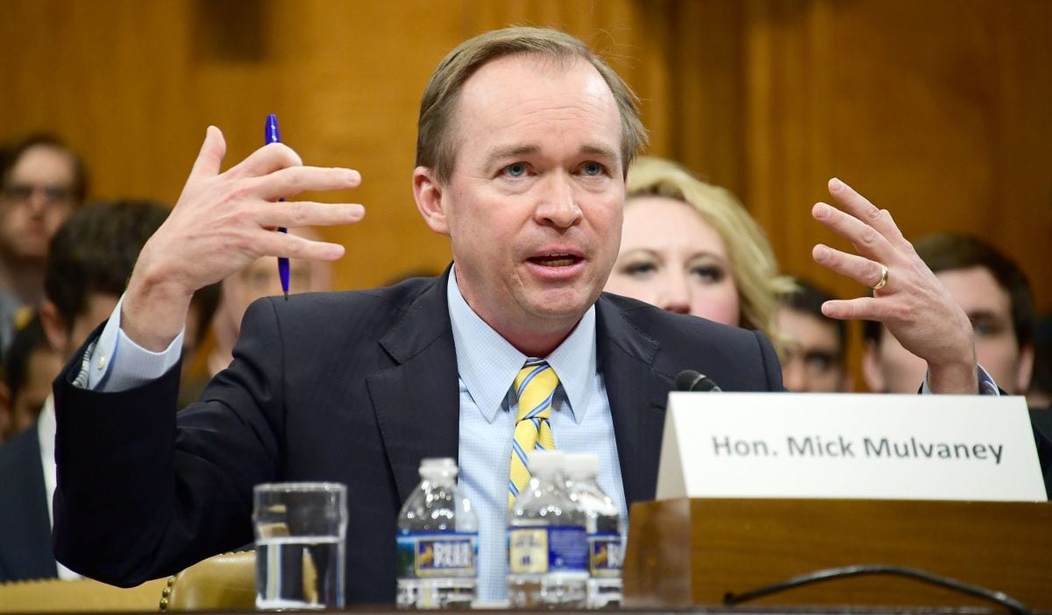The Consumer Financial Protection Bureau (CFPB), created by the Dodd-Frank Act as a banking and credit watchdog, has a unique problem. No one is sure who’s in charge.
That’s because when Richard Cordray, the Obama-appointed director, resigned, he named his deputy, Leandra English, as his acting replacement. This is in keeping with rules established in Dodd-Frank regarding succession at the agency.
But the Trump administration believes the president has the authority to name a temporary director, so Trump named budget director Mick Mulvaney to the post.
It should be a very interesting Monday morning at the CFPB.
Reuters:
Democrats, accusing the White House of finding a backdoor method to defang a banking watchdog, point to language in the Dodd-Frank law that created the CFPB, stipulating the deputy director replaces the director when he or she leaves.
But administration officials said the 1998 Federal Vacancies Reform Act gives presidents the power to temporarily fill agency positions, except for those with multi-member boards – an exemption that they said did not apply to the CFPB.
“We believe this move by the president is a typical routine move exercised by presidents,” said one of the officials, who spoke to reporters on condition of anonymity, noting the White House had sought guidance from the Justice Department before Trump named Mulvaney to the job.
The Justice Department’s Office of Legal Counsel will soon publish a formal view, the officials said.
The CFPB was supposed to be an independent agency, but its status in that regard is still up in the air as court cases dealing with the agency’s constitutionality continue. Regardless, since the president has the power to name the director, you would logically believe he could name someone as acting director.
Republicans have complained the agency is too powerful and lacks oversight from Congress on its operations. Industry critics said the succession battle was a case in point of how the agency had too much power.
“The CFPB’s current governing structure is a dictatorship, period,” Richard Hunt, head of the Consumer Bankers Association, said in a statement.
Democrats and consumer advocates said it was unfair to put Mulvaney – who once described the CFPB as a “joke” – in charge.
Maxine Waters, the top Democrat on the House of Representatives’ financial services committee, said the appointment would give Mulvaney a seat on the boards of two other financial regulatory agencies.
“The White House would have an alarming degree of direct control over financial regulation, supervision, and enforcement,” Waters said in a statement.
Sorry, Maxine, but there’s nothing “alarming” about the president exercising his constitutional authority. It may be “alarming” to Democrats who hate banks and think credit card companies are all crooks. But it’s business as usual for the rest of us.
Hopefully, Trump will take his own sweet time naming a replacement. The CFPB is easily one of the most overbearing federal agencies in existence, criminalizing actions by lenders and brokers that aren’t criminal acts. Mulvaney would do well to develop a light touch in enforcing some of the more draconian rules implemented by the agency.










Join the conversation as a VIP Member